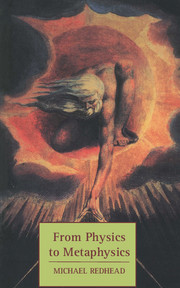2 - Science and Subjectivity
Published online by Cambridge University Press: 05 August 2012
Summary
In his bookThe View from Nowhere the philosopher Tom Nagel argues that while each one of us, as a potential scientist or protoscientist, has a particular, personal and subjective perspective from which we view and interpret the world, the object of science is to abstract from these subjective perspectives and produce the objective view from nowhere, as he puts it.
This idea is really implicit in the doctrines of the ancient atomists, and was given a sharp formulation in the seventeenth century with the distinction drawn by Galileo and particularly emphasized in a somewhat different way by Locke, between what are usually called primary and secondary qualities. In the objective world ‘out there’ matter has extension, shape and motion and it is by virtue of these primary qualities that matter has the power to produce in our subjective experience the colours, tastes, smells, the ideas of secondary qualities, which we falsely impute to matter itself in our everyday thinking. Science is concerned only with the objective primary qualities, and, hence, abstracts from the diverse richness of subjective experience just those features which are objective, independent of subjective experience, independent of the observer, as we may call her. In the seventeenth century it was natural to think in terms of a dualism of mind and matter, the Cartesian res cogitans and res extensa. Science was concerned then with res extensa.
- Type
- Chapter
- Information
- From Physics to Metaphysics , pp. 21 - 40Publisher: Cambridge University PressPrint publication year: 1995



